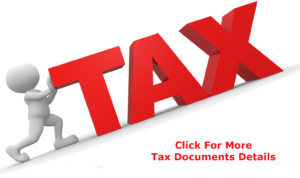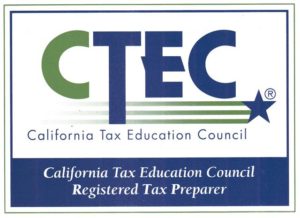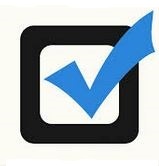List of Items to Collect For Tax Preparation
Please gather the following items to prepare for your income tax return filing
Social Security Card(s)
Your Social Security number, which is your taxpayer identification number, is printed on your Social Security card. If you do not have a Social Security card, you can apply for one by completing Form SS-5, Application for a Social Security Number Card. If you are changing your name (due to marriage, divorce, etc.), notify the Social Security Administration (SSA) so that you can obtain a new Social Security card. Get Form SS-5 from your local SSA office (see the blue pages of your local phone book) or by calling 1-800-772-1213. This form can also be obtained from the SSA Web site at www.ssa.gov. If you have your Social Security card, please bring it with you to the tax interview.
If available, bring the Social Security cards and dates of birth for each child. We will use this information for the dependents you can claim on your tax return. If you had a baby during the year, the hospital may have provided Social Security application forms for your child. You must have a valid Social Security number for every person included on the tax return to electronically file with the IRS.
Driver's License(s)
We will use your driver's license to verify your identity. Other forms of identification you can bring include: state-issued picture ID, military ID with picture, U.S. passport, Resident Alien ID with picture, city-issued picture ID, or county-issued picture ID.
Wage Statements – Form W-2
For employee income, you should receive a Form W-2, Wage and Tax Statement, in the mail from each employer you worked for during the year. Contact the employer if you do not receive your Form W-2; it should be sent to you by January 31 of the following year. Under certain conditions, we can determine your income by using your payroll stubs. For non-employee income (for example, if you are an independent contractor) that was $600 or more, a Form 1099-MISC, Miscellaneous Income, should be sent to you by January 31 of the following year. Bring all of your current year Forms W-2 and Forms 1099-MISC to your tax interview.
Last Year's Federal and State Tax Returns
You may be able to qualify for some of the same tax deductions or tax write-offs that you received last year. If you are not a prior-year Accounting and Tax Services client, consider bringing in a copy of last year's tax return(s) to your tax interview. Certain information from the prior year's return(s) may be helpful in calculating the current-year tax return.
Please review the rest of this list to see if anything applies to your tax situation
Interest and Dividend Income
If you have earned interest from any bank during the year, that bank will send you a Form 1099-INT, Interest Income, at the end of the year. Even if you do not receive a Form 1099-INT, you still need to report your interest. If you do not receive a Form 1099-INT, consider bringing in your year-end bank statement to your tax interview so we can determine the amount to report. If, during the year, you have dividend income from stocks or funds, you will be sent a Form 1099-DIV, Dividends and Distributions, from each company or institution. Bring these year-end forms to your tax interview so that we can use them to help calculate your gross income.
Unemployment Income
If you received state unemployment compensation (insurance) during the year, it should be included as income on your return. The average unemployment benefit is approximately $300 per month. Form 1099-G should be sent to you from the payer by January 31 of the following year. The IRS will also receive a copy of the Form 1099-G. Contact your state office if you have not received your Form 1099-G.
Social Security Income
If you received Social Security payments during the year, some of these funds may be taxable income. Bring Form SSA-1099, Social Security Benefit Statement (sent by the Social Security office at the end of the year) to your tax interview so we can determine the amount of benefits that are taxable, if any.
Itemized Deductions exceeding $12,000/Single-$18,000/Head of Household-$24,000 Married filers.
Mortgage or Home Equity Loan Interest Paid
Generally, qualified mortgage interest and home equity loan interest qualify as itemized deductions. Points may be deductible in full in the current tax year or evenly over the life of the loan. The mortgage holder should send a Form 1098 by January 31 of the following year that shows how much you have paid in interest that year. If you do not receive a Form 1098, this information might be found on your mortgage bill instead. If available, bring your mortgage interest information to your tax interview. If you do not have this information, it may be possible to contact your mortgage company directly to obtain this information.
Real Estate and Personal Property Taxes Paid
Bring proof of tax payment to your tax interview. In some cases, your mortgage company will pay real estate taxes for you. If so, they will send proof of payment on a Form 1098 by January 31 of the following year.
Medical, Eye Care, and Dental Expenses
Most taxpayers know that medical expenses are deductible but few of us ever actually benefit from the deduction. The catch? This deduction has two high hurdles:
- You must itemize deductions to write off medical expenses, and only about one-third of taxpayers have itemized in the past.
- Medical costs are deductible only after they exceed 7.5 percent of your Adjusted Gross Income (AGI) in 2018. So if your AGI is $50,000, the first $3,750 ($50,000 x 0.075) of not reimbursed medical expenses doesn't count.
There are limits on the amount you can deduct for long-term care insurance. Keep records of your family's medical, eye care, dental, and health insurance expenses for the year. Go over these expenses with me to see if you qualify for this deduction. And don’t forget to include a number for the mileage you traveled in 2018, this is deductible at a rate of 18 cents a mile.
Cash and Non-cash Charitable Donations
Charitable contributions are deductible only if you itemize deductions. Bring any canceled checks for amounts under $250, pay stubs for amounts the employer withheld for charitable organizations (such as for the United Way), pledge cards, or written acknowledgments or disclosures you receive from the organization to which you made contributions. For any single contribution of $250 or more, the IRS requires you to keep written acknowledgements from the charitable organization. For non-cash charitable donations, the amount of your contribution should be the fair market value of the property you donated. If you donated a car, boat, or other such vehicle, your deduction may be limited to the gross proceeds from the sale of the car by the charitable organization. The organization should provide you with a written acknowledgement, which you must attach to your return if the claimed value of the vehicle is over $500. Keep records of your contributions and provide me with your contribution amounts during your tax interview. And don’t forget to include a number for the mileage you traveled in 2018, this is deductible at a rate of 14 cents a mile.
State Income Tax Refund Amount
If you received a state or local income tax refund or credit during the year, we need include it as income if you deducted this amount as an itemized deduction in an earlier year. Form 1099-G, Certain Government and Qualified State Tuition Program Payments, should be sent to you from the payer by January 31 of the following year. If you do not receive Form 1099-G, contact your state office. Federal income tax refunds are not included in your income because they are not deducted to arrive at taxable income. If you are not a prior-year Accounting and Tax Client, we recommend you bring your last year's federal and state income tax returns to your tax interview so that we can use them to help determine state-related itemized deductions.
Casualty or Theft Losses
You may be able to deduct part or all of a loss due to theft or casualty, such as vandalism, a fire, or a storm, if the loss is covered by a declared federal disaster declaration and the total amount of losses during the year is greater than insurance reimbursements, $100, and 10% of your adjusted gross income (total income minus federal adjustments allowed). Keep any police reports, insurance claim forms, appraisals, or other proof of loss as part of your records. Also, keep any receipts for repair work done to the damaged property. Inform me of the amount of your loss. Also inform me if you received any financial assistance to help cover your loss or cover your additional expenses.
Self-Employed Business Income & Expenses
If you run a business as you are taxed on gross income minus expenses. Bring your accounting records showing your totals for income and expense items to your tax interview.
Sales of Stocks or Bonds
Capital gains and losses on the sale or trade of investments are classified as either short-term (if the property is held for a year or less) or long-term (more than one year). A paper loss, which occurs when an investment's value drops below its purchase price, does not qualify for this deduction. Bring Form 1099-B, Proceeds from a Broker and Barter Exchange Transactions, any brokerage statements (showing dates bought and sold), and any available confirmation receipts (shows the cost basis and any fees paid) to your tax interview so that we can get you the lowest tax rate available for your situation and help you plan for next year.
Income from Partnerships, S Corporations, Trusts, and Estates
The income and deductions that these entities pass on to you are included in your return. Bring Schedule K-1 or an equivalent statement to your tax interview.
Income and Expenses from Rentals
If you own rental property, money received as rent is reported as income. You can deduct expenses for acquiring, maintaining, insuring, and operating the rental property. Bring your accounting records to your tax interview. If you do not have accounting records that summarize your transactions, you can also bring your receipts or other proof of income or expenses.
Estimated Taxes
If you are self-employed or paying quarterly estimated taxes, review your Form 1040-ES payment vouchers and any state tax vouchers so that you can notify me of the amount you paid and receive credit for the payments already made.
Alimony Paid or Received
Any alimony you received in the current year is taxable income. Any alimony you paid is deductible on your tax return. Child support payments are not included in the recipient's income and they cannot be deducted by the payer. If you receive or pay child support in addition to alimony and your decree or agreement specifies individual amounts, only the alimony is taxable or deductible. Review the copy of your decree and any record of actual payments so that you will be able to provide me with the alimony amount during your tax interview.
Pension or Retirement Income
The amount of retirement or pension income subject to federal taxes is based on your age when you started receiving distributions and the amount you originally contributed to the plan. Form 1099-R, Distributions from Pensions, Annuities, Retirement or Profit Sharing Plans, IRAs, Insurance Contracts, etc., should be sent to you from the payer by January 31 of the following year. Bring this information with you to your tax interview.
Record of Purchase or Sale of Residence
- Purchase - If you purchased a home during the year, you may be able to claim certain expenses as itemized deductions, for example mortgage interest and real estate taxes. You should receive a Form 1098, Mortgage Interest Statement, from your mortgage company by January 31 of the following year that shows the interest, points, and escrow real estate taxes you have paid. Bring this form and a copy of your settlement papers for the new house, including Form HUD-1, Settlement Statement (released by the U.S. Department of Housing and Urban Development) if available, to your tax interview so that we can calculate your savings. Also, bring statements on real estate taxes you paid if they are not shown on your Form 1098.
- Sale - The sale of your main residence needs to be reported only if you have a gain for which part of the gain is taxable. To claim the exclusion on the gain from a sale, you must have owned the home and lived in it as your main home for at least two years. You may be able to exclude up to $250,000 ($500,000 for Married Filing Jointly returns) of the gain from your income. The tax basis of your property needs to be determined. If you saved your Form HUD- 1 from closing, certain items listed on that statement, such as the attorney's fees, surveys, agent's commissions, title searches, recording fees, and the transfer and stamp taxes, can be added to the basis. We recommend you bring Form HUD-1 from the closing, any applicable receipts, copies of the sale documents, copies of the original purchase documents and receipts for property improvements to your tax interview.
Lottery or Gambling Winnings
Gambling winnings greater than $5,000 are usually subject to income tax withholding. The amount of income tax withheld for the year is 25% of the amount paid (the total amount you won minus the amount of your bet). If you receive gambling winnings of $600 or more, the payer should send you a Form W-2G, Certain Gambling Winnings. This form shows the amount you won and the amount withheld, if applicable. Bring this form to your tax interview so that we can use it to help calculate your gross income. All gambling winnings are taxable, regardless of whether or not you received a W2-G. Bring the sum of your total winnings from all sources with you.
Lottery or Gambling Losses
Gambling losses (up to the amount of gambling winnings) can be deducted on your income tax return. You must be able to substantiate your losses with a written log that includes the date, location, type of gambling, amount of wager, and your winnings and losses. Certain types of gambling require additional proof of the wager (for example, payment slips and non-redeemed tickets when playing the lottery or the name and number of a slot machine and the time it was played). Keep a gambling log (along with any necessary supporting information) as part of your records. Notify me of the amount of your losses, so they can be properly claimed against your gambling winnings on your return.
IRA Contributions
You may be able to deduct up to $5,500 for individual contributions to an IRA. If you are age 50 or over, you may be allowed to deduct an additional $1,000 or $6,500. Limitations for filing status, participation in other retirement plans, and total income may apply. You should keep any bank or plan administrator documents and receipts you have as part of your records. Notify me of the amount of your IRA contribution.
Child Care Expenses and Provider Information
If you have a qualifying child under age 13, a disabled child of any age, or a disabled spouse, and you pay someone to provide care for them, you may qualify for a tax credit of up to 35% of your expenses. You must provide the IRS with the care provider's name, address, and taxpayer identification number (TIN), which can be a Social Security number or an employer identification number (EIN). If the provider is a daycare center, the TIN is their EIN. If the provider is an individual, the TIN is their Social Security number. If the provider is a church or non-profit group and has no EIN, the word Tax-Exempt can be substituted for the TIN. You should keep proof of payment receipts with your records. Notify me of the expenses you paid during the year.
State or Local Sales Taxes Paid
You can now elect to deduct state and local general sales taxes you paid on Schedule A in lieu of deducting state and local income taxes. Regardless whether you live in a state that has high, low, or no income tax, if you have made any major purchases during the year, keep your receipts. These may add up to more than your state and local income tax. If you have not kept receipts that support your state and local sales tax expense deduction, you can use standard amounts provided by a table specially created by the Internal Revenue Service (IRS) for this purpose. You can also use this tabular amount if it is greater than your actual expenses. If you use this tabular amount, you can still claim a deduction for the sales tax paid on vehicles (boats, cars, etc.) or other items specifically allowed by the IRS, so keep those receipts for your records.
Non-Reimbursed Employment-Related Expenses
Miscellaneous deductions which exceed 2% of your AGI will be eliminated for the tax years 2018 through 2025. This includes deductions for non-reimbursed employee expenses and tax preparation expenses. ... These expenses also include non-reimbursed travel and mileage, as well as the home office deductions.
Job-Related Educational Expenses
If you itemize your deductions, you may be able to deduct job-related educational expenses as long as the courses are necessary to maintain your job skills but do not qualify you for a new job. Examples of deductible job-related educational expenses include books, mileage (54.5 cents per mile for 2018), software, and tuition. Make sure you have written records of your mileage. Additionally, your job-related educational expenses may qualify you for other tax benefits, such as the Lifetime Learning Credit. Talk with me about your situation to determine whether to take the deduction or the tax credit.
Tuition and Education Fees
If you are a student, or if you have a dependent who is a student, you may be able to either deduct up to $4,000 as an adjustment to income, or elect one of the education tax credits for college tuition. Qualified tuition expenses are fees paid for you, your spouse, or a dependent you claim an exemption to attend an eligible institution. Other restrictions apply. Bring Form 1098-T, Tuition Payments Statement, or a copy of your college tuition bill to your tax interview.
Student Loan Interest
If you took out a student loan for yourself, your spouse, or you’re dependent, you may be able to deduct up to $2,500 of the interest you paid during the year. You should receive a Form 1098-E, Student Loan Interest Statement, showing how much interest you paid during the year. Ask your tax preparer how to get the most from these benefits.
Foreign Taxes Paid
If you are paying foreign income taxes on your interest or dividends, these payments will be listed on your Form 1099-INT, Form 1099-DIV, or other similar statement. For other foreign taxes paid or withheld, bring proof of payment to your tax interview.



